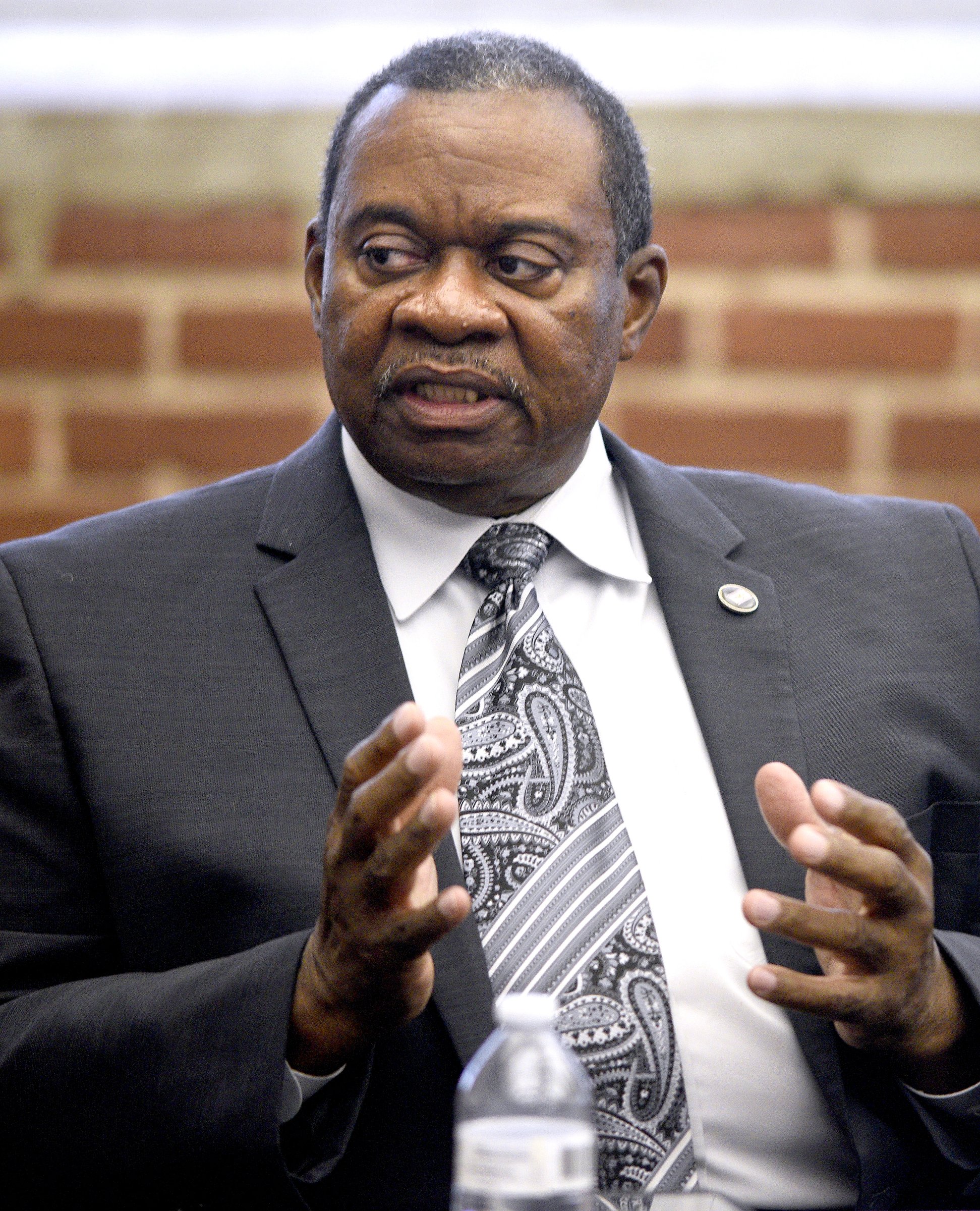NASHVILLE - In response to George Floyd's death, Tennessee Black Democratic legislators had hoped to make strides in the Republican-controlled General Assembly in areas ranging from police training to the removal of Confederate Gen. Nathan Bedford Forrest's bust from the state Capitol.
But when the dust cleared last week, not much in the way of policy or law had changed on those and related fronts.
Lawmakers did unanimously approve a resolution declaring House and Senate members were "greatly appalled and grievously saddened at the repugnant and senseless killing" of Floyd, a Black man who died May 25 while a white Minneapolis police officer had him pinned on the ground with a knee to his neck.
And at Tennessee Republican Gov. Bill Lee's request, GOP lawmakers did away with a provision in a 1968 law that requires every governor to sign a July 13 proclamation declaring the date as "Nathan Bedford Forrest Day."
But efforts failed to do away with the official commemorative day for Forrest, a former slave trader whose troops were involved in a massacre of Black Union troops at Fort Pillow, Tennessee, and who also was an early leader of the Ku Klux Klan.
Also remaining is Forrest's bust, which since 1978 has occupied a prominent niche outside the House and Senate chambers on the Capitol's second floor. Bills to remove it failed as they have repeatedly over the years. And a Republican lawmaker, who sought a compromise by recommending the State Capitol Commission review its policy of honoring Tennesseans in the building and restrict it to elected state or federal officials, never pushed it on the final day.
Lawmakers at the last minute did approve a bill allowing Lt. Gov. Randy McNally, the Republican Senate speaker, and Republican House Speaker Cameron Sexton to appoint one new member each to the Capitol Commission, with some hoping that might spur some change in policy such as at least placing historical context on or near the Forrest bust.
Lawmakers also did not approve a measure proclaiming June 19 as "Juneteenth" to "honor and recognize" June 19, 1865. It marks the date enslaved Black people in Galveston, Texas, were informed by a Union major general that they had been freed through President Abraham Lincoln's Emancipation Proclamation issued two years earlier.
But Gov. Lee later issued a proclamation declaring June 19th as "Juneteenth." Neither document made it a state holiday. The Senate approved a stand-alone resolution commemorating the day. The House took no official action.
In a recent interview, Rep. Yusuf Hakeem, D-Chattanooga, one of two black lawmakers who live east of Nashville, said "I don't feel we, the legislative body, has accepted or been willing to reckon with the lack of diversity, the lack of inclusiveness, it's just a political lens in my perspective.
A former State Parole Board member who saw his own 2019 effort as a freshman to push a bill requiring more police diversity training in Tennessee stall, Hakeem said "the mindset right now is oblivious to what is happening in the nation and around the world. There is a perspective that 'we're voted in, we have the power, we're going to do what we feel is in the best interest of the people,' disregarding any inclusion or diversity in how that process happens."
In a newsletter for his constituents released Thursday, hours before the 111th General Assembly recessed early Friday morning, Hakeem wrote "the truth is that the Confederacy and the people that supported it fought for their states' right to continue the use of a slave economy. The Constitution of the Confederate States of America enshrines slavery as a cornerstone of their secession by stating, 'No bill ... or law denying or impairing the right of property in negro slaves shall be passed.'"
Republicans, including Rep. Robin Smith of Hixson, point out that it was Democrats who approved the installation of Confederate figures around the state Capitol.
"And so it is part of our history. And we should learn from our history, not live it every day," Smith said as the legislative session neared its end. "There's no one in this building in either party championing racism, championing slavery. Instead we ought to come together and say our past is our past."
Smith said while she is "happy to work with people to address this bust or any other issue ... constantly going back to the same thing over and over again, sometimes you have to get off the treadmill of a topic and move on. It's about solving a problem, not keeping a conflict or a grievance alive.
"So," Smith added, "I would just simply say there needs to be a deliberate decision on this. And maybe it's both leaders of the chambers appointing a commission. Maybe it's the governor doing something."
After recessing their session on March 19 as the extent of the coronavirus pandemic became clear, Tennessee lawmakers returned June 1 with Senate Republicans saying they were focused on the budget mess created by the pandemic's impact on state revenues and other mission-critical or "time-sensitive" issues.
Lee - whose prior work as a volunteer in prison ministry had led him to push a criminal justice reform bill that stopped well short of what his earlier task force had recommended - had to abandon the bill amid shortfalls, but there was also opposition among a number of Republicans to the bill.
House Republicans began pushing all the bills that had been stopped in mid-stride on March 19.
One new House GOP effort targeted protesters who showed up en masse outside the Tennessee Capitol. When demonstrators said they were going to establish an "autonomous zone" similar to one in Seattle, House GOP lawmakers pushed a bill that among other things made camping on state property a felony.
Protesters toppled a prominent statue of former U.S. Sen. Edward Carmack, a late 19th and early 20th century newspaper editor and editorialist whose writings attacked Ida B. Wells, a Black investigative journalist and early civil rights leader in Memphis who exposed the lynching of Black men, prompting Wells to move to Chicago.
In response, House GOP leaders pushed a bill making camping on state property a felony. The Republican Senate ignored it and the measure did not pass.
Contact Andy Sher at asher@timesfreepress.com or 615-255-0550. Follow him on Twitter @AndySher1.

